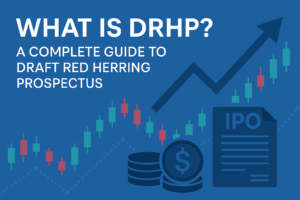What is a Pre-IPO & Why You Should Know About It?
What is a Pre-IPO & Why You Should Know About It?
Hello, investors! I hope you’re doing great. Whether you need a joke or not, here’s something better—a useful blog that explains what a Pre-IPO is and why it matters to you as an investor.
🧐 What is a Pre-IPO?
A Pre-IPO (Pre-Initial Public Offering) is a process where a company raises funds before it gets officially listed on the stock market. The company collects money from individual investors, venture capitalists, or private firms to grow its business—whether to increase production, expand operations, or meet financial goals.
In return, these early investors receive a small ownership stake in the company, even before the company becomes public.
Sometimes, companies may have already taken loans from banks or received capital from angel investors. However, Pre-IPO funding is another strategic method of raising money directly from selected investors.
🤔 Why do companies raise funds from people instead of banks?
There are two main reasons why companies prefer Pre-IPO funding over bank loans:
- To increase personal net worth: By giving away a small equity stake, founders grow the value of their remaining shares if the company’s valuation increases in the future.
- To avoid interest payments: Unlike loans from banks or NBFCs (non-banking financial companies), Pre-IPO funding does not require interest payments or loan repayment hassles.
So, this funding method helps companies grow without debt pressure and still benefits both the company and the early investors.
💼 How is Pre-IPO funding managed?
Generally, a company appoints a third-party agent or organization to handle this process. These agents reach out to potential investors and offer investment opportunities in the unlisted shares of the company.
📈 Why is it called a Pre-IPO?
Each country has its own official stock market, regulated by a governing body. In India, for example, SEBI (Securities and Exchange Board of India) gives permission to companies to list their shares publicly.
However, companies can raise funds without obtaining SEBI’s formal approval before getting listed. Investors knowingly invest at their own risk, and they refer to these shares as Pre-IPOs or Unlisted Shares.
Famous examples include:
- NSE
- OYO
- Tata Capital
- Macwin Solar
These companies are not yet listed on the stock market, but you can still invest in them through Pre-IPO channels.
💸 What are the benefits of investing in Pre IPO or Unlisted Shares?
Pre-IPO investments can offer very high returns, especially if the company grows significantly after listing.
Let’s say you invest ₹1,00,000 in Macwin Solar, which currently has a valuation of ₹500 crore. If the company grows and gets listed at a valuation of ₹5,000 crore in the next 2 to 5 years, your investment could grow 10x and become ₹10,00,000 a 900% return!
⚠️ Of course, returns are not guaranteed, but early-stage companies have a higher growth potential.
If you have ₹5 lakhs, you can diversify by investing in 5 different unlisted companies. Even if a few underperform, one or two strong performers can give you excellent returns overall.
✅ Final Conclusion:
Pre IPO investment is a golden opportunity for investors who can take calculated risks. It allows you to enter early in growing companies before they hit the stock market, and the potential returns can be massive. However, due diligence and patience are crucial.

Share this content:






1 comment